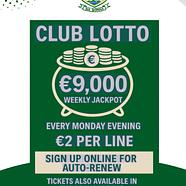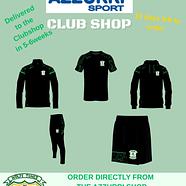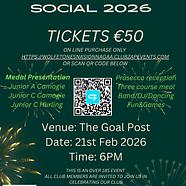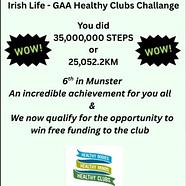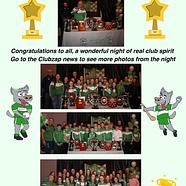THE ATHLETIC TRIANGLE
As part of the Primary School Curriculum, the teacher is committed to “100% of the children, 100% of the time.” This slogan must be adhered to by all members of the school community - especially by those involved with young children including the GAA coach. GoGames School blitzes are primary examples of where coaches fulfil this commitment to our children – “every child gets a go.” GAA clubs could adopt a similar coaching protocol where possible. In 2015, children aged between 8-18 years accounted for 200,000 members of the Gaelic Athletic Association, thus highlighting the importance of young players in the Gaelic codes. Therefore it is vital that our children are encouraged, loved and respected in order to develop into healthy young adults, who will continue to be active members of the GAA community. In youth sport, the child-coach-parent triad is often referred to as the “athletic triangle,” and the complex nature of interactions between its members are key determinants in the development of the child.
THE CHILD PLAYER/ATHLETE IN SPORT
Participation in sport yields a multitude of benefits for a child. These benefits are not solely limited to physiological adaptations such as increased heart rate or reduced feelings of fatigue. Improvements can also be ascertained with respect to the psychological well-being and cognitive function of the young player e.g. reduced anxiety; improved self-esteem; development of leadership and decision making skills; etc. The social aspect of youth sport also provides the player with an opportunity to interact with other children in the hope of making new friends – many of which will last for a lifetime. However, the primary focus of youth sport should always be fun.
Research informs us that it is a fundamental right of a child to have fun when playing sport, and this right should never be neglected. One of the most frequent ways that fun is removed from youth sport occurs when children are judged and treated like professional (adult) athletes – thus denying the child their right to play for fun. Underage sporting activities must always be played to promote fun and enjoyment - it is crucial the activity is “child centred” and not “adult dominated”.
ROLE OF THE COACH IN SPORT
The underlying philosophy of youth sport plays an integral role in the development of a growing child. Children are more likely to attribute positive team morale to the philosophy instilled by the coach, as opposed to other external factors such as win-loss record of their team; the number of goals scored by an individual player; etc. Therefore an underage coach is tasked with creating an appropriate team environment that allows all children to prosper, thus demonstrating their significance to each individual child within the group of players.
An effort-orientated coaching philosophy creates a learning atmosphere where player development, maximum effort, team success and fun are facilitated by the coach and his/her assistants. This largely positive environment is associated with increased levels of confidence, self-worth/esteem, enjoyment of the given activity and motivation to improve. Furthermore, lower state (short-term) and trait (long-term) anxiety, as well as reduced dropout rates are have been linked with this coaching philosophy.
Alternatively, the implementation of an ego-orientated or “win at all costs” philosophy has hugely detrimental effects on child GAA players. This mentality suggests to the child that defeat in a match results in apocalyptic, world-ending events. Consequently children may lose the opportunity to practice their skills, to enjoy the feeling of being part of a team, and to develop socially. An educated coach realizes that success is not the equivalent of winning games, and that failure doesn’t mean losing matches. Instead coaches should encourage his/her players to strive for maximum effort, and that winning is a reward for a deserving team effort.
A coach must also be able to distinguish between developmental and professional sporting models, in an attempt to acquire the aforementioned benefits of youth sport. In essence a competent underage GAA coach is similar to a primary school teacher. Their main objective is to guide their players along the educational pathway through the medium of Gaelic games.
ROLE OF THE PARENT IN SPORT
When a child first joins the local GAA club and begins playing, parents are often required to assume new obligations. Occasionally this leads to the parent experiencing unforeseen scenarios due to him/her being totally unware of the expectation(s) now placed on their shoulders. Some parents never accept these responsibilities which results in missed opportunities for the child; while other parents have the best intentions at heart but consequently interfere or disrupt the potential of their aspiring GAA starlet.
It is important for all parents to appreciate that their child has the right to choose whether or not to play a given sport, GAA or otherwise. Parents may encourage but should never force participation in sport. Children who have been forced to play against their will are reported to experience less fun, lower motivation to continue playing and reduced sporting benefits – all of which contribute towards dropout from sport. Unfortunately tradition can often be an influencing factor in certain circumstances e.g. “Her father was a great footballer, so there’s no reason why she shouldn’t play football;” “He should stick to the football, sure he’s not even from a hurling area/family.”
Although participation in Gaelic games is desirable, we should recognise that these sports are not for everyone. Parents can often become highly anxious when their son or daughter hasn’t shown any interest in either code, especially if they themselves were successful players. As a result they attempt to solve the problem by forcing hurling/camogie or football on their child, which only leads to quitting i.e. dropout.
COACH-PARENT RELATIONSHIP
It’s crucial to recognise the right and responsibility of parents to inquire about their child’s sporting activity; therefore coaches should always remain open to parent’s input – provided it is both positive and constructive. An appropriate setting and time can be arranged between both parties – this should not be during a training session or match. The successful growth of a child in Gaelic games is largely dependent on the efficiency of the coach-parent relationship; which justifies the following recommendations.
Parents of young players have to be willing to place their trust in the GAA coach to guide their child, and accept that the child may express affection towards their coach as result of his/her nurture. Parents and coaches must also share the responsibility of supporting a child with the “thrill of victory” as well as the “agony of defeat.” Whether or not they have realized, parents and coaches are role models for young hurlers and footballers. Parents and coaches have the obligation not only to control their own behavior but also to remind others, if necessary. The actions of the parent should never contradict the coach, and vice versa e.g. if the coach is trying to teach his/her team about sportsmanship or self-control, the parent cannot be seen to be abusive or violent towards others during a game.
However it’s not all negative, parents can and should be able to enjoy their child’s sporting experience as coaches have the potential to be a useful resource for learning parents who wish to upskill themselves. Firstly, the coach should attempt to empathize with parents about the importance of attending as many of their child’s training sessions/matches as possible. This enables parents to share in their child’s sporting experience. Parents may offer to assist the coach with the logistics of a training session or match-day e.g. setting-up/collecting cones; filling water bottles; helping with the delivery of a drill/game; etc. Many novice GAA parents may then decide to attend coaching courses/workshops to gain an appreciation of the rules, skills and strategies of Gaelic games. During the pre-season or at least in the first few weeks of the playing season, the coach should attempt to implement a session for parents who have limited knowledge of Gaelic games. Naturally such an event allows the parent to learn, but also enables them to voice any of their concerns, and helps to develop the coach-parent dyad – paramount to the athletic triangle, and the overall development of the child in Gaelic games.


